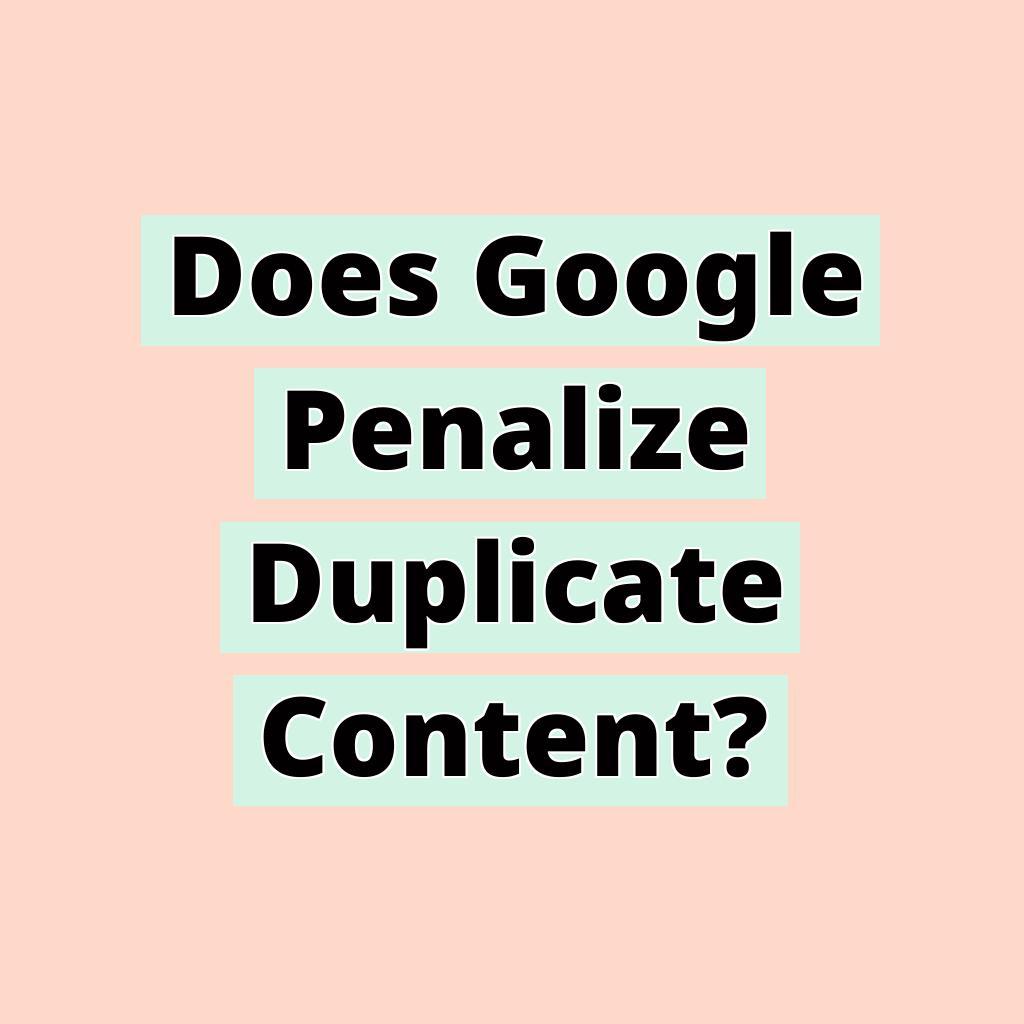As a writer and content creator, I’ve often grappled with the question of duplicate content and its impact on search engine rankings. The fear of being penalized by Google for publishing duplicate content can be a significant concern for anyone involved in digital marketing. In this blog post, I aim to delve into the topic and shed light on the nuances of duplicate content and its implications for search engine optimization.
Understanding Duplicate Content
Duplicate content refers to blocks of content within or across domains that either completely match other content or are appreciably similar. It can occur on a website in various forms, such as identical product descriptions, boilerplate content, or syndicated articles. While the presence of duplicate content is not inherently malicious, it can pose challenges for search engines in determining the most relevant and authoritative source for a particular piece of content.
Myth vs. Reality: Does Google Penalize Duplicate Content?
The notion that Google penalizes websites for duplicate content is a widely perpetuated myth in the digital marketing realm. In reality, Google does not penalize websites for duplicate content per se; instead, it seeks to filter out duplicate or redundant content to deliver the most valuable and diverse search results to users. However, the presence of significant duplicate content on a website can lead to issues such as diluted search visibility and potential challenges in consolidating ranking signals for the original content.
Canonicalization and its Role
Canonicalization is a critical aspect of addressing duplicate content issues. By employing canonical tags, website owners can communicate to search engines the preferred version of a web page when multiple versions exist. This practice helps consolidate the indexing properties of the duplicate pages into the preferred version, thereby mitigating the risk of diluting ranking signals.
The Impact on SEO
While Google’s approach to duplicate content is not punitive, it is essential to recognize the potential impact of duplicate content on SEO. Instances of duplicate content can diffuse ranking signals across multiple versions of the same content, leading to diminished visibility and authority for the original source. Moreover, it can impede the efficient crawling and indexing of a website by search engine bots, potentially affecting the overall organic performance.
Best Practices for Handling Duplicate Content
In light of the implications of duplicate content, it is prudent for website owners and content creators to adhere to best practices to mitigate its adverse effects:
- Create unique and valuable content: Prioritize the creation of original and compelling content that adds genuine value to your audience.
- Utilize canonical tags: Implement canonical tags to specify the preferred version of a web page, particularly in cases involving similar or duplicate content.
- Leverage 301 redirects: When consolidating multiple versions of a page, utilize 301 redirects to guide users and search engines to the canonical URL.
- Monitor and address syndicated content: If your content is syndicated on other platforms, monitor the distribution and consider implementing measures such as meta tags to signal the original source to search engines.
The Bottom Line
In conclusion, the presence of duplicate content does not lead to direct penalties from Google; however, it can impact the visibility and authority of a website’s content. By understanding the nuances of duplicate content and proactively implementing measures such as canonicalization and content optimization, website owners and content creators can navigate the challenges associated with duplicate content while upholding the quality and relevance of their digital assets. Embracing a strategic approach to content creation and management can not only mitigate the risks associated with duplicate content but also enhance the overall search engine optimization efforts for long-term success.
